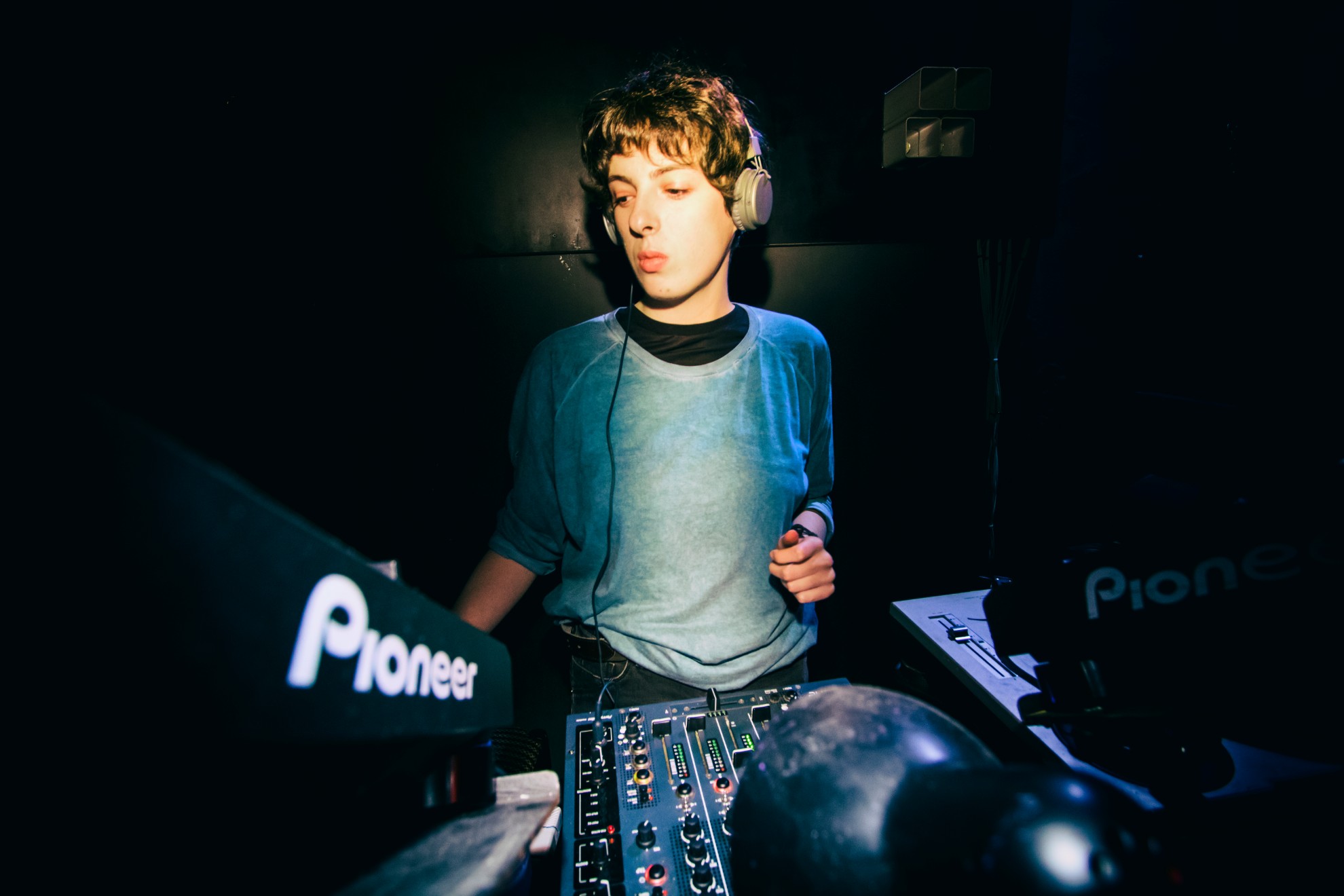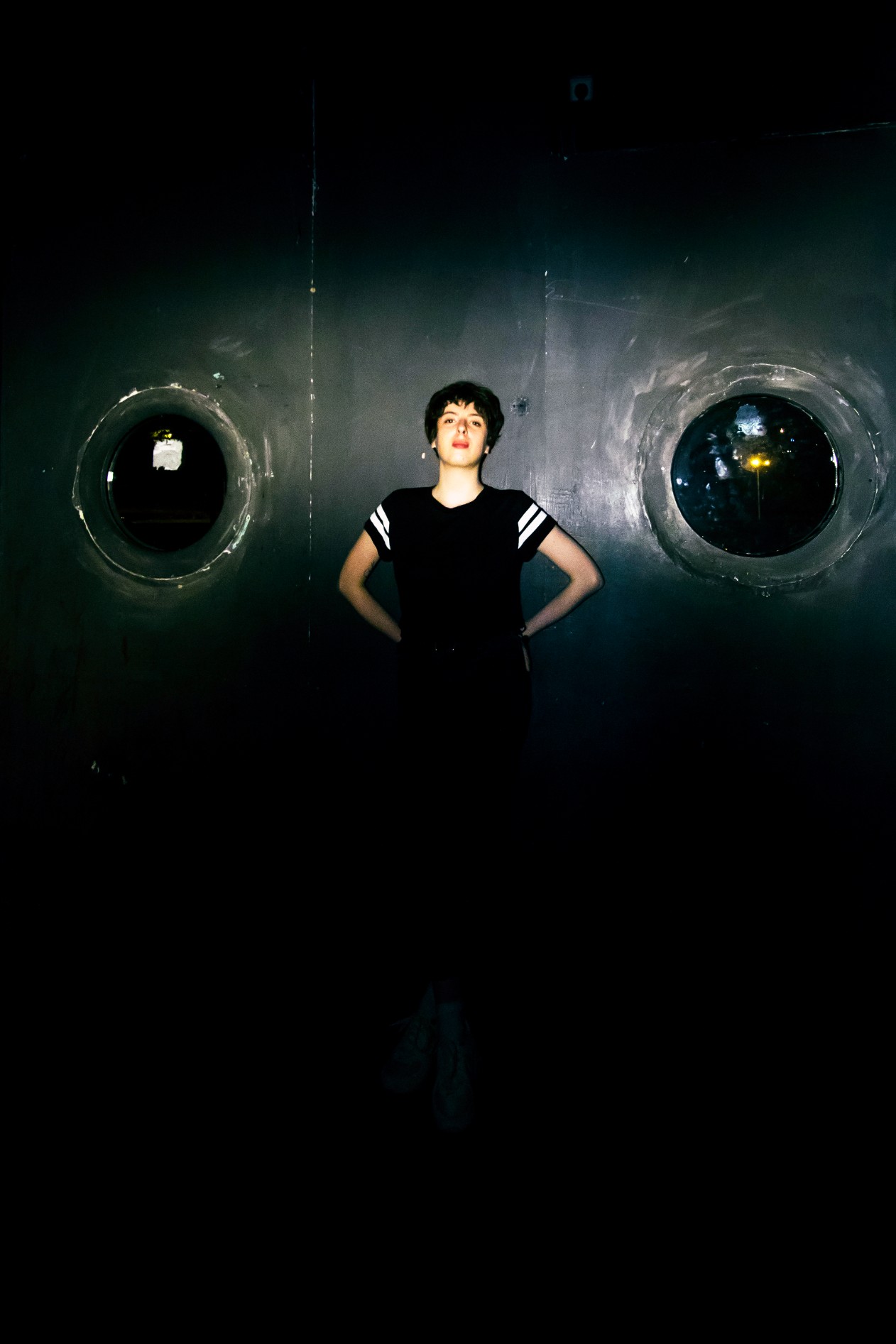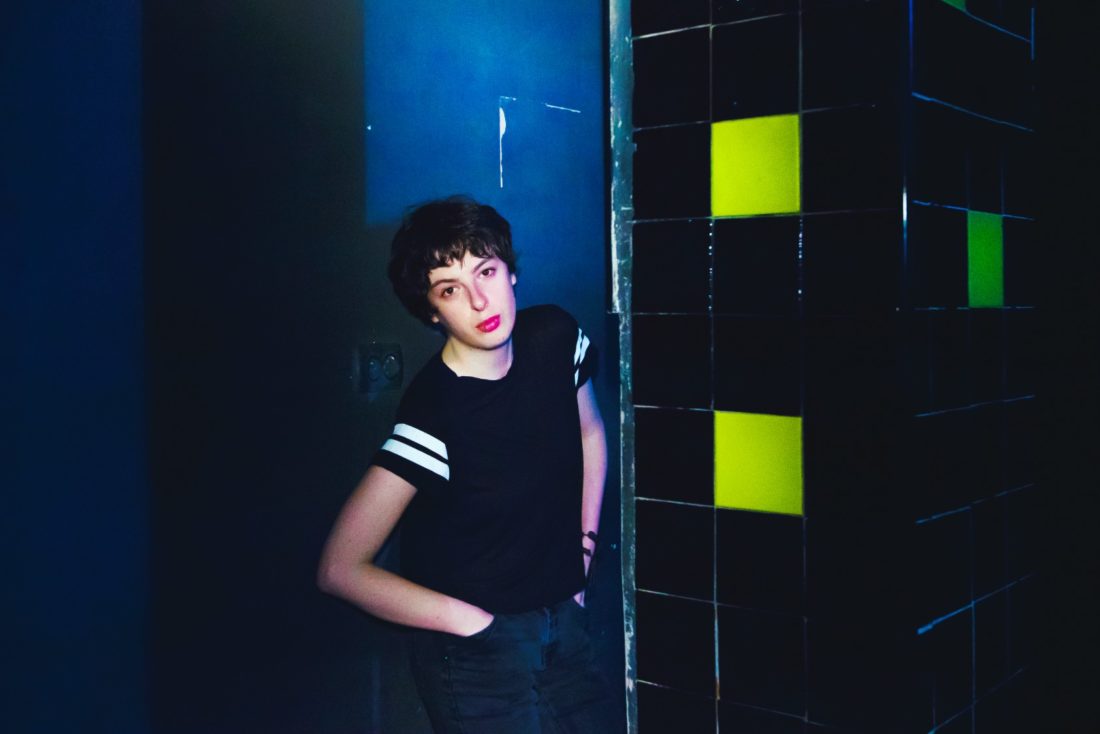Ana Kublashvili, 27, Tbilisi
I was raised in a family of musicians, so I’ve always had close ties with music. Since the age of four, I have sung, played the piano and drums. I have experimented a lot and tried the music of every genre.
Electronic music has fascinated and interested me since an early age, but I started making music in Uzbekistan where I had to live together with my parents. While living in Uzbekistan, I had a lot of free time on my hands so I did some stuff I enjoyed doing. I had never intended to return to Georgia, become a DJ and achieve the success I currently enjoy. I just have always liked what I’m doing, because I like to think. Techno is the kind of music that requires a lot of thinking. For me, techno is associated with melancholy and negative life experiences of a human being. I think whatever happens in our life, whether good or bad, makes us stronger. However, negative experiences give us more strength. Therefore, if you don’t fall and don’t rise again, you will neither comprehend such music nor be able to create it. Techno is a complex music; that is why, it took me almost seven years to reach the current level.
I kept making music after returning from Uzbekistan. Luckily, at the time, new clubs started to crop up in Tbilisi and the interest towards techno music was growing gradually.
 I am quite emotional. Sometimes I’m troubled by conflicting emotions and I translate them into my music. I have been receiving offers from various countries for quite a while now. At the end of June, I’m going to Toulouse (France). For a musician, releasing music on a CD is a great achievement, for the simple reason that it remains a tangible treasure not to be lost in the cyberspace. My CDs have already been released under the Bassiani label and under a Greek label Olympos. By the end of this year, I will join the family of two large labels – the Spanish “SEMANTICA RECORDS” and the French ”LA CHINERIE”.
I am quite emotional. Sometimes I’m troubled by conflicting emotions and I translate them into my music. I have been receiving offers from various countries for quite a while now. At the end of June, I’m going to Toulouse (France). For a musician, releasing music on a CD is a great achievement, for the simple reason that it remains a tangible treasure not to be lost in the cyberspace. My CDs have already been released under the Bassiani label and under a Greek label Olympos. By the end of this year, I will join the family of two large labels – the Spanish “SEMANTICA RECORDS” and the French ”LA CHINERIE”.
This year, “boiler room”, a series of world-renowned moving events was held in Tbilisi and I took part in it as well. It was the first time a Georgian product was exported from our country at such a large scale and I’m happy to say, that my music has enjoyed bigger interest since then.
I put my experiences, emotions and thoughts into music. Everything that builds up, accumulates inside me, finds its way out and into my music. This is how I listen to other people’s music too, trying to imagine what the other musician must have felt while creating the composition. When you think like that, you have more empathy to another human being. Generally speaking, clubbing rules can easily apply to a larger society. In the club, every person has his or her personal space; in the club, it does not matter what your sexual orientation is, where you work or what family you come from. In the club, we try to make one another feel comfortable and, together, absorb the emotion that’s coming from the music playing at that very moment.
Speaking of attitudes towards sexuality, I think that in a patriarchal society, women are more likely to have common sense and empathy. Generally, women are more advanced and free of complexes in this country, than men. This field is the only one, unlike other fields, where sex and gender does not matter. Despite the fact that I am the first woman in this field to have achieved such success, I have never felt from my, mostly male, colleagues any kind of discrimination or envy. What matter is what kind of music you make! I have always felt their support. By the way, men in this field are very tolerant, open-minded and empathetic.
 Unlike my colleagues, I have faced masculinity stereotypes from the listeners. “She’s a boy”, I’ve heard them say only because they, for some reason, think techno is a “music of boys”. They think they are paying me a complement by saying this. I don’t find it very irritating. Everybody has their own opinion.
Unlike my colleagues, I have faced masculinity stereotypes from the listeners. “She’s a boy”, I’ve heard them say only because they, for some reason, think techno is a “music of boys”. They think they are paying me a complement by saying this. I don’t find it very irritating. Everybody has their own opinion.
Today, women especially need to be rebellious. But for this we need to be mature and confident in ourselves and our abilities, and must have a specific goal that drives us.
Initially, I had a conflict in the family because of my occupation. They worried that I was a girl, and sometimes I did not go home at night at the weekends, playing in clubs. I fought a lot to do what I wanted to do and it was not easy. My parents’ attitudes have changed since then. Now they are happy and proud and support me in what I do, and, of course, their support encourages me to achieve more.”

